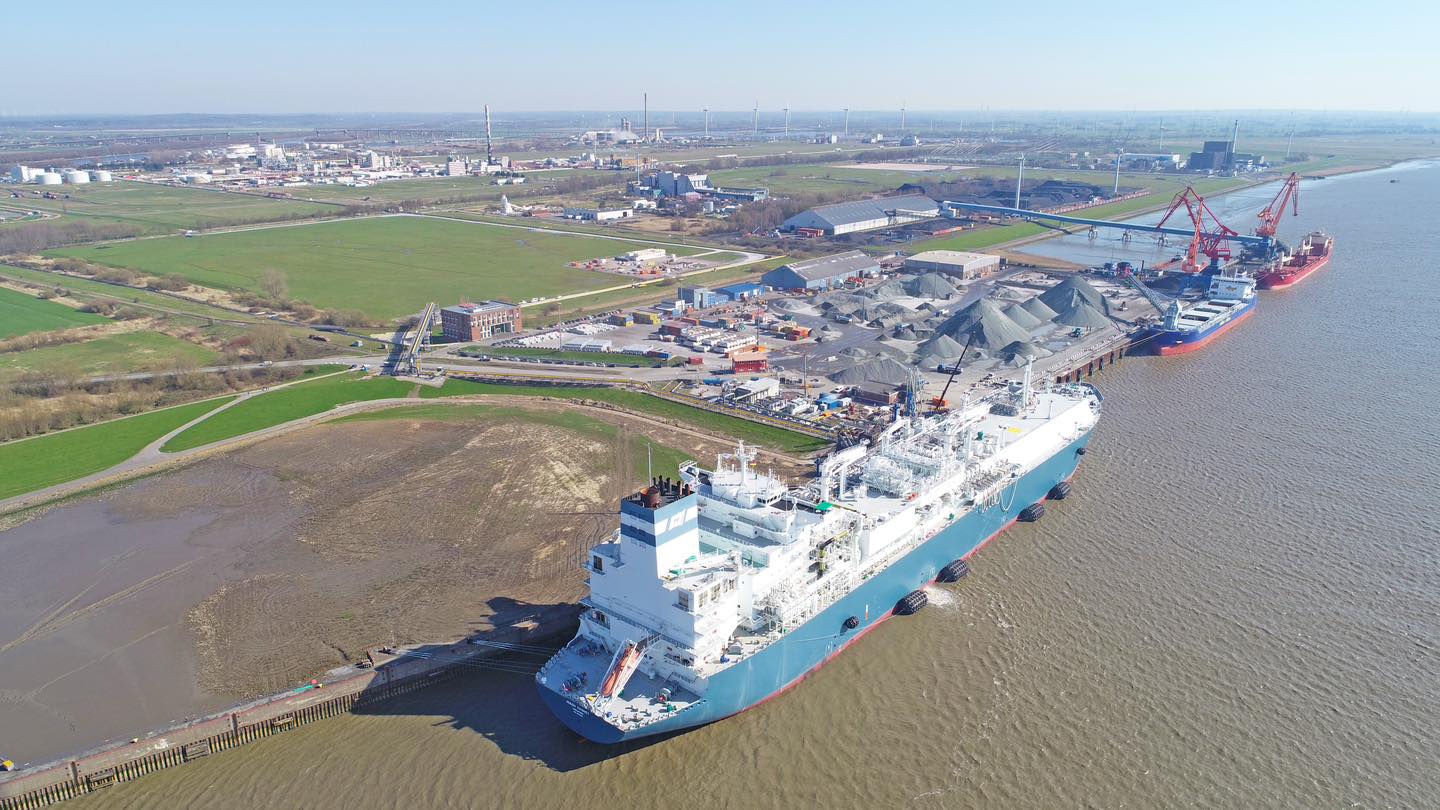Germany’s Elbehafen FSRU-based LNG import terminal in Brunsbüttel has started commercial operations, according to German energy firm RWE.
RWE, which developed the project with Hoegh LNG, Brunsbüttel Ports, and other partners on behalf of the German government, previously said that the FSRU began supplying regasified LNG to the grid on March 22.
The 170,000-cbm FSRU Hoegh Gannet, which serves the Elbehafen LNG import terminal, received its first LNG tanker on February 14 from UAE’s Adnoc and the second tanker from the US on April 22.
“With the LNG cargo delivered by the LNG Sakura at the beginning of May, the terminal started regular commercial operation,” a spokesman for RWE told LNG Prime via email on Monday.
According to LNG Sakura’s AIS data provided by VesselsValue, the 2018-built LNG carrier delivered the cargo from the Cove Point LNG export plant in the US to Brunsbüttel.
Japan’s NYK and Kansai Electric Power jointly own the vessel, while the latter uses the 177,000-cbm LNG carrier to ship volumes from the Cove Point plant.
DET takes over
RWE’s spokesman said that the government-owned Deutsche Energy Terminal GmbH (DET) will handle the commercial operations of the FSRU-based LNG terminal, while Elbehafen LNG is responsible for the technical operations of the terminal.
DET was established at the beginning of 2023 and will operate this terminal and other four government-backed FSRU-based facilities.
Hoegh Gannet, which the German government took on charter from Hoegh LNG, will initially operate at the Brunsbüttel Port’s existing dangerous goods berth.
From the end of 2023, the FSRU will work from a new jetty to the west of the Elbehafen and Brunsbuettel Ports will build and operate this jetty.
This is Germany’s third FSRU-based facility after the launch of terminals in Wilhelmshaven and Lubmin.
In addition, three more such terminals are expected to come online in Germany by next winter.

